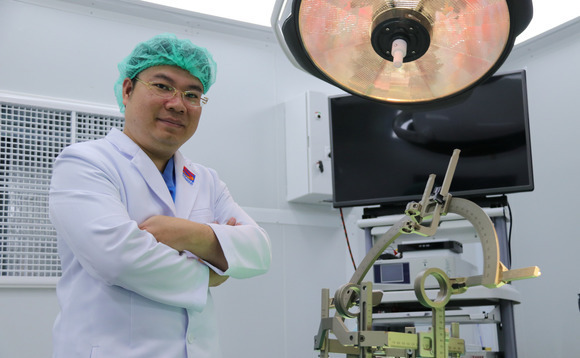
Deal focus: Navis penetrates Thai hospital segment

Navis Capital Partners’ acquisition of NP Medical extends its coverage of the Southeast Asia hospital space to a third geography while tapping into a general trend towards specialty providers
Navis Capital Partners has made gradual incursions into Southeast Asia's hospital services space. Its debut deal came in 2016 with the acquisition of Hanoi French Hospital, the first international private healthcare facility in Vietnam's capital, and this was followed five years later by the purchase of Aurelius Healthcare, which targets Malaysia's hinterlands.
The latest addition to the portfolio, Thailand-based NP Medical, represents a foray into another geography. However, the series of hospital investments also tracks progression from general or mass market to specialist care – and David Ireland, a senior partner at Navis, regards this as significant.
"This is our first investment in a specialty hospital. They are still relatively novel in Thailand, but we are beginning to see them in some of the more developed markets in Asia – for example, specialist eye and cancer hospitals are coming through," he said.
Navis has acquired a majority stake in NP Medical for approximately USD 40m, picking up a combination of primary and secondary shares. The new capital will be used to support an expansion of the company's facilities, which currently include a 35-bed hospital and adjacent services, typically delivered in remote locations, such as rehabilitation support.
NP Medical was established in 2017 by Dittapong Boonampol, a neurosurgeon with extensive experience treating spine and nerve conditions. He advocates using minimally invasive procedures to address the root cause of pain rather than simply treating symptoms. The onus is on smaller incisions, less blood loss, lower surgical risk, better cosmetics, and faster recovery times.
Faster recovery times mean more efficient use of hospital capacity. Ireland notes that NP Medical's minimally invasive approach means a patient can be discharged within two days of a procedure as opposed to a week for traditional operations.
"[Boonampol] trained in the US and spent time in Korea, so his procedures – and the idea of less expensive, better outcomes – are well-known in markets like Northeast Asia," Ireland said. "Things move slowly elsewhere because of the training involved and the limited number of qualified surgeons. Senior doctors often don't like to change their approach."
Navis first encountered Boonampol two years ago when a family member of the firm's investment professionals was treated by NP Medical. Boonampol was not actively seeking external backers, but he harboured ambitions to expand and listened to the pitch. This led to protracted courtship during which the two sides considered the implications of a partnership.
NP Medical took a hit during COVID-19 as domestic patients postponed elective surgeries and Thailand's medical tourism industry – which accounts for 10% of patients – shut down. However, the company rebounded strongly and there are now plans to build a new facility close to the current one, expand into other areas of orthopaedics such as joint issues, and build out medical tourism.
Nevertheless, spine and nerve conditions remain the core focus area and this is underpinned by a compelling demographic argument. The UN already classifies Thailand as an ageing society and is expected to meet aged society criteria by 2025, which means the proportion of the population aged 60 or over will rise from 10% to 20%. With this comes greater prevalence of back and neck pain.
"When you look at Vietnam and Cambodia, those are young societies, but Thailand is rapidly ageing. At the same time, back pain is one of the leading ailments globally, so we see Thailand as a growth market with the right demographic mix," said Ireland.
It is an attractive niche in a sector that commands significant investor interest yet offers few entry points. Ireland adds that many of Thailand's large private hospital groups are already well-funded or publicly listed. Two of the most prominent, Bumrungrad Hospital and Bangkok Dusit Medical Services, have market capitalisations of THB 142bn (USD 3.8bn) and THB 429bn, respectively.
Latest News
Asian GPs slow implementation of ESG policies - survey
Asia-based private equity firms are assigning more dedicated resources to environment, social, and governance (ESG) programmes, but policy changes have slowed in the past 12 months, in part due to concerns raised internally and by LPs, according to a...
Singapore fintech start-up LXA gets $10m seed round
New Enterprise Associates (NEA) has led a USD 10m seed round for Singapore’s LXA, a financial technology start-up launched by a former Asia senior executive at The Blackstone Group.
India's InCred announces $60m round, claims unicorn status
Indian non-bank lender InCred Financial Services said it has received INR 5bn (USD 60m) at a valuation of at least USD 1bn from unnamed investors including “a global private equity fund.”
Insight leads $50m round for Australia's Roller
Insight Partners has led a USD 50m round for Australia’s Roller, a venue management software provider specializing in family fun parks.







